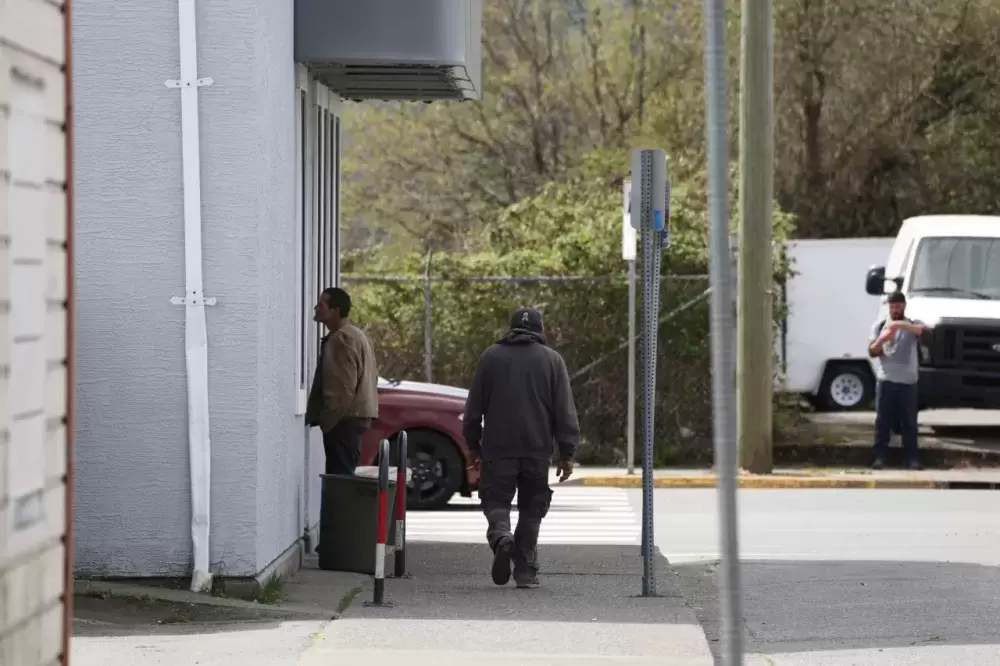The provincial government has rolled out new clinical guidance for health-care providers to curtail the spread of COVID-19 and respond to the ongoing overdose emergency.
The province states the dual public health emergencies present unprecedented risks for vulnerable and at-risk people. New hazards have arisen in responding to overdoses related to the increasingly toxic drug supply and withdrawal for those who must self-isolate or quarantine to prevent the spread of COVID-19.
“We’re dealing with one public health emergency on top of another, and the challenges are unlike anything we’ve ever seen,” said Judy Darcy, minister of Mental Health and Addictions in a press release. “Physical distancing is not easy when you are living in poverty, visiting a clinic every day to get your medicine and relying on an unpredictable, illegal drug supply. This guidance will make it easier for at-risk people to meet the requirements of distancing while avoiding other serious risks to their health and to the health of the community.”
The guidance supports people who are at risk of COVID-19 infection, people who have a confirmed infection or a suspected case pending diagnosis and people who have a history of substance use, including opioids, stimulants, alcohol, benzodiazepines or tobacco.
To reduce the risk of transmission, the guidance outlines steps for prescribers, pharmacists and care teams on providing safe alternatives to the illegal drug supply and delivering prescriptions directly to patients, along with telemedicine for clinical assessments.
“As the effects of the pandemic continue to unfold, the illicit drug supply is likely to become significantly more adulterated and toxic,” said Cheyenne Johnson, co-interim executive director of the BC Centre on Substance Use in a press release. “Coupled with directions to self-isolate or quarantine and risk potentially dangerous withdrawal as a result, people who use substances are especially vulnerable to the harms of these dual health emergencies.”
April marks the fourth anniversary of the declaration of the overdose crisis as a public health emergency in British Columbia, and the COVID-19 pandemic is adding greater challenges.
Locally, the Port Alberni Shelter Society (PASS) is taking measures to educate clients and shelter staff of the risks of COVID-19, methods of prevention, proper hand washing techniques and social distancing.
“We are basically expanding our harm reduction programs around opioid use to embrace the more recent COVID concerns,” said John Douglas, special projects coordinator with PASS.
The shelter, located on Eighth Avenue, has closed the main shelter to public visitors in order to keep numbers down. Twenty-seven additional beds have been added for homeless individuals but Douglas said the shelter has yet to reach capacity.
The shelter society’s Sobering Site, the overdose prevention site on Fourth Avenue and their substantial food distribution programs are still operating at normal hours.
“Ongoing programs to educate and oversee safer practices are in place,” Douglas said. “We have formed a relationship with a group of community members who are very kindly sewing fabric masks which we then provide to clients.”
Douglas said the number of people using the overdose prevention site has remained the same since the COVID-19 outbreak. He said due to distancing protocols, there is a limit of clients allowed in to access the site at one time. Safe distancing is required and staff are constantly washing and bleaching surfaces and handing out masks as they are available.
The province has deemed overdose prevention sites essential services as they are clinical spaces.
“Homelessness, addictions and mental health are of course great challenges in our society at the best of times. COVID-19 has heightened that situation and is one more threat,” Douglas said. “Due to its airborne capacity, COVID makes those people in this sector particularly vulnerable. Education is one key to helping prevent more harm and the provision of personal protective equipment is also very important.”
Douglas added the delivery of a safe supply for people with addictions is “one more step which would prevent people with addictions having to go out to obtain their currently illegal drugs.”
Should further isolation requirements occur, Douglas said discussions and planning measures have taken place between the City of Port Alberni, the Alberni-Clayoquot Regional District, health authorities, BC Housing and other community partners who will work together to plan accordingly.







